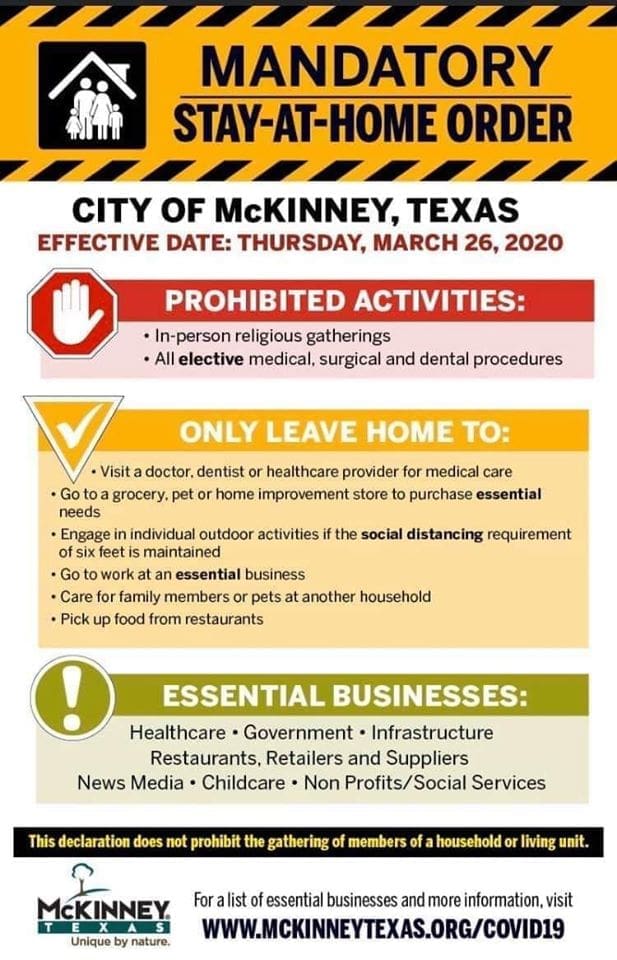Hours after being challenged with legal action, a North Texas city scaled back its overreaching restrictions on religious liberty imposed in response to the public health emergency created by the coronavirus.
On Friday, McKinney officials altered prohibitions on religious gatherings contained in the city’s day-old shelter-in-place order, after First Liberty Institute sent a warning that the restrictions went “well beyond the CDC guidelines, and violate federal and state law” including the First Amendment.
First Liberty is a public interest law firm dedicated exclusively to defending religious freedom.
McKinney Mayor George Fuller’s original shelter-in-place order issued on March 25 (effective March 26) restricted religious services to video or teleconferencing only. A “mandatory stay-at-home order” flyer listed “in-person religious gatherings” as one of two “prohibited activities.”
 The amended order approved by McKinney City Council on March 27 says religious and worship services may also be provided by “such other manner that follows the Social Distancing Guidelines.”
The amended order approved by McKinney City Council on March 27 says religious and worship services may also be provided by “such other manner that follows the Social Distancing Guidelines.”
“We are grateful to McKinney city officials who responded quickly and appropriately to ensure their policies are both consistent with the Constitution and the CDC’s guidelines,” said First Liberty General Counsel Mike Berry in a press statement.
Berry explained in his letter to Fuller that singling out religious services for special restrictions violates both the U.S. Constitution and the Texas Religious Freedom Restoration Act.
TRFRA requires any government burden on religious exercise to serve a compelling interest using the least restrictive means. First Liberty said prohibiting all in-person services under threat of criminal prosecution and fines didn’t meet that standard:
“McKinney could accomplish its interest in reducing the spread of COVID19 by requiring religious services to comply with applicable social distancing guidelines—just as it does for other activities—but without dictating the method churches must use to comply.”
McKinney’s original order also failed to apply the same rules to religious gatherings as it did to similar services like food service and childcare:
“Defining these similarly situated services as ‘essential’ is not a defense. Religious exercise is an essential and constitutionally protected activity. No government may suspend the Constitution because that government insufficiently values its citizens’ religious needs.”
First Liberty said it would take “all necessary action, including litigation,” to ensure McKinney complied with the law.
Also on Friday, a McKinney resident filed a legal challenge to other provisions of the city’s order, which he says conflict with the county’s “stay home, work safe” directives. Under Texas law, county orders supersede those of cities.
An order issued by County Judge Chris Hill last Tuesday directs all county residents to stay home, except for travel related to essential activities. The county’s order defines all businesses as “essential” and encourages them to stay open if they can do so safely. Religious gatherings are not singled out.
Hill’s order specifies its intent is to “slow the spread of COVID-19 to the maximum extent possible while safeguarding the constitutional liberties of Collin County citizens by utilizing the least restrictive means possible and encouraging the highest level of personal responsibility.”
A district judge is scheduled to decide Tuesday afternoon whether to block portions of McKinney’s current ordinance.





